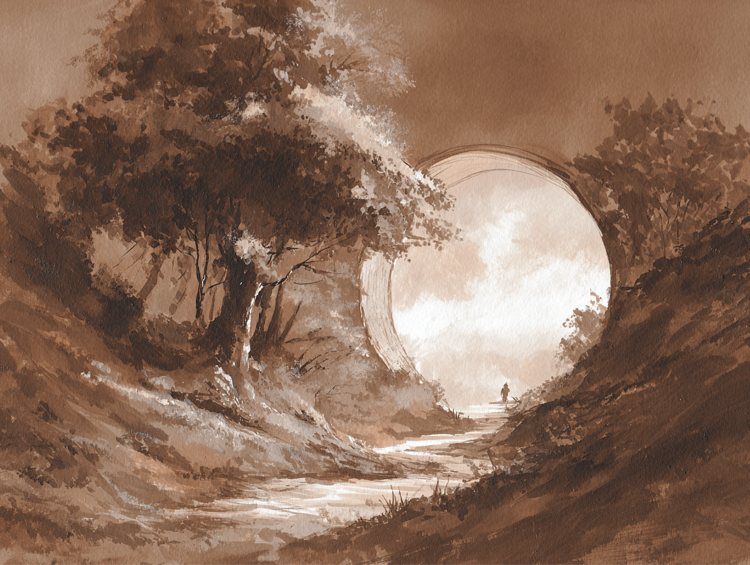by Bruce Kasanoff
The basic idea: An international, multi-disciplinary team of researchers has identified two attributes that make individuals more likely to have vivid experiences of God (and spirits). They conducted four studies involving over 2,000 participants across five countries: the United States, Ghana, Thailand, China and Vanuatu.
The first attribute is porosity, which the researchers define as: the idea that the boundary between “the mind” and “the world” is permeable. Intuitions that wishes or curses might come true, that strong emotions might linger in a room to affect others, or that some people might be able to read minds are examples of porosity.
The second attribute is absorption, defined as: an individual’s personal tendency to be engrossed in sensory or imagined events. People with a greater capacity for absorption tend to “lose themselves” in their sensory experiences and are capable of conjuring vivid imagined events. For example, they might get so caught up in music that they do not notice anything else, or they might feel that they experience the world the way they did as a child.
The greater your leanings towards porosity and absorption, the more likely you are to have spiritual experiences.
A bit more background: I realize today's topic is a huge subject to tackle in a newsletter designed to be read in about one minute. Fortunately, there are three excellent resources already available online:
This article from the University of Massachusetts has a concise summary.
Stanford News published this article: Stanford researchers identify two factors in experience of otherworldly phenomena
You can also read the full paper: Sensing the presence of gods and spirits across cultures and faiths.
In particular, I found fascinating this passage from the paper:
Some distinction between an “inner” mind and an “outer” world likely exists in most cultural models of the mind. Most of these models also include everyday ways in which such a boundary might be crossed (e.g., thoughts being exchanged across minds through conversation). When people in a particular context speak of divine inspiration, divination, telepathy, witchcraft, or miraculous healing, they accept that, for some people, under some circumstances, knowledge enters the mind from the outside in unusual ways and emotions or intentions leave the mind to affect the world in unusual ways. These representations likely draw on common human experiences—insight, intuition, wishing, awe—but the ethnographic record makes clear that the ways in which the inner–outer, mind–world boundary is drawn, and the more extraordinary means by which it might be crossed, vary across social worlds. Different social-cultural settings invite people to attend or disattend to this distinction; to take some experiences more seriously than others; to identify different sets of conditions under which these events can occur; and to invoke different causal mechanisms to explain these events. We speculate that cultural differences in models of the mind reflect, at least in part, the incentives provided by different social conditions.
I'd summarize things this way: if you think you are separate and alone, you are. But if you perceive yourself—and your mind—as being interconnected with the world around you, then you are likely to have a completely different, much more spiritual existence.
I would love to hear both your reaction to this study as well as your own personal experiences in this regard.
One last comment: it pleases me to see a rigorous academic approach to a subject like this that is often the province of self-help books. Here are the researchers and their affiliations:
John C. Dulin, Vivian A. Dzokoto, Cristine H. Legare, Michael Lifshitz, Emily Ng, Nicole Ross-Zehnder, and Rachel E. Smith
Department of Anthropology, Stanford University
Department of Psychology, Stanford University
Department of Anthropology, University of Massachusetts, Amherst
Department of Behavioral Science, Utah Valley University
Department of African and African American Studies, Virginia Commonwealth University,
Department of Psychology, The University of Texas, Austin,
Department of Social and Transcultural Psychiatry, McGill University
Amsterdam School for Cultural Analysis, University of Amsterdam,
Department of Social Anthropology, University of Cambridge
I am Bruce Kasanoff, an executive coach who can help you get what you want. Book a one-hour call with me and I’ll prove it.

